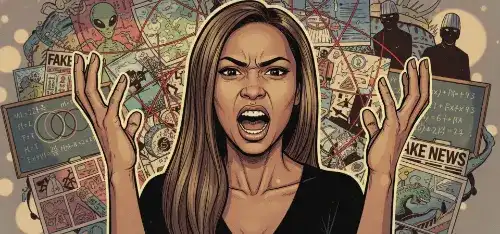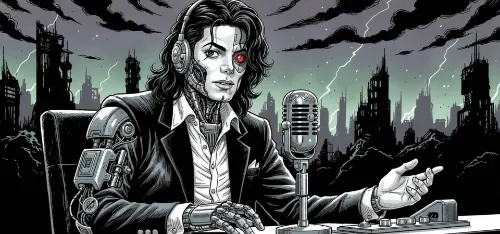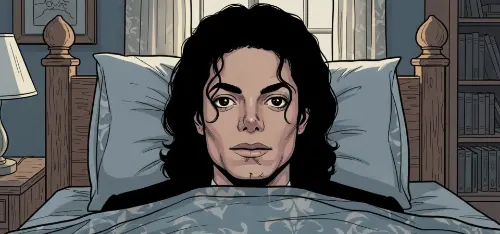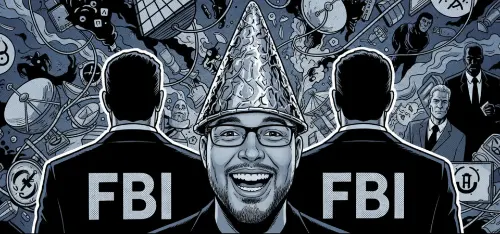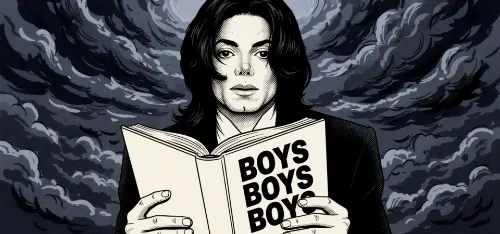Carl Douglas’s Candid Criticism of Michael Jackson and His Fans

Nov 8, 2019
In September 2019, Carl Douglas—an experienced American defence attorney best known for his close work with the late Johnnie Cochran and as a key member of Michael Jackson’s 1993 legal team—gave a rare and unusually candid interview on the podcast Telephone Stories: The Music is Everywhere. During the discussion, Douglas offered stark and provocative reflections on his involvement in Jackson’s 1993 case and shared strong views on how Western society idolises celebrities, often at the expense of truth and accountability.
Unlike many lawyers who have either avoided the topic or spoken protectively of Jackson, Douglas stood apart with a striking level of openness. He made it clear that while he was proud of the legal strategy that kept Jackson from facing criminal charges at the time, he harboured no illusions about the wider cultural forces at play.
Listen to the audio segment below
In the interview, Douglas drew uncomfortable parallels between the loyalty of Jackson’s supporters and the behaviour of fans who continue to defend disgraced figures like R. Kelly. He noted:
Many, I'm sure, of his fans will go to their graves believing in his righteousness. Just like, I'm sure, there are fans of R. Kelly who would say his accusers are all lying.
Douglas didn’t shy away from describing this blind faith as deeply troubling, calling it a symptom of what he saw as a disturbing societal pattern:
Its kind of a SICK way that we Westerners embrace celebrity.
He went even further by comparing Jackson supporters to political followers who remain loyal despite clear and public evidence of wrongdoing. In a pointed reference to then-U.S. President Donald Trump and his political base, Douglas remarked:
How else can you explain our current president and those who support him with all of the various kinds of accusations that are completely at odds with who they claim to be in every other part of their lives, yet they defend him to the last?
Douglas even coined a term for this phenomenon, dubbing it “The Michael Jackson Effect”—a concept that describes unwavering devotion in the face of overwhelming contradiction. He explained:
In fact, that is a great analogy. The Michael Jackson effect is being played out even today with Donald Trump. He’ll have his 35% core believers—even if he shot someone on 5th Avenue. Despite people around him pleading guilty, despite his own words and behaviour—completely outside the accepted norm—there are senators who still support him.
To Douglas, this pattern of blind allegiance was more than misguided—it was tragic. In a moment that blended dry humour with sharp critique, he said:
I mean, that’s even more tragic than somebody from Indiana loving Michael Jackson records and not believing Jordan Chandler,” he added with a laugh. “That’s even worse, I say.
Reflecting on his own role in Jackson’s legal defence, Douglas drew a sharp line between personal conviction and professional duty. As a lawyer, he explained, his job isn’t to determine guilt or innocence, but to defend his client within the framework of the law:
I don’t dwell on whether Joe Blow actually killed the person that I am defending. I couldn’t do my job for the next guy if I had those kinds of lingering feelings or doubts. I’m proud of the work I did on behalf of Michael Jackson—I avoided a criminal charge. So I don’t have a personal thought that I would want to share because I’m still working every day, still defending those who have been accused of crimes they may have committed.
This wasn’t the first time Douglas had spoken openly about the Jackson case. In a separate recording from the Frozen in Time seminar, where he appeared alongside fellow lawyers Thomas Mesereau and Larry Feldman, Douglas elaborated on the behind-the-scenes pressures during the 1993 settlement process. One particularly revealing moment involved concerns over photographs taken of Jackson’s genitalia—evidence that could potentially support or discredit the accuser’s testimony.
Douglas described the looming threat of criminal charges as a dominant, unspoken force during mediation:
In our perspective, you have to remember that there was a companion criminal investigation case going on by both the District Attorney's office in Los Angeles and Santa Barbara. There had been an occasion where Michael Jackson was examined, and his genitalia was recorded, which was part of an investigation. That was part of the 300-pound gorilla in the mediation room. We wanted to do all that we could to avoid the possibility that there would be a criminal filing against Michael Jackson, and the reality was we were hopeful that, if we were able to "silence" the accuser, that would obviate the need for any concern about the criminal side. So, from our perspective, there was a great deal of trust—not only with Johnnie and Larry, because they had a twenty-year prior friendship—there was a tremendous trust with Johnnie and the three judges being recommended. And we were facing the purple gorilla in the room of: if we don't get this case settled before March, there is a criminal investigation looming, and no one wanted to consider the implications of that as it affected Michael Jackson.
Watch the video below.
Carl Douglas’s willingness to speak with such clarity—especially in contrast to the usual caution and vagueness from legal representatives tied to high-profile cases—offers a rare look inside the legal and cultural mechanics that shaped the outcome of one of the most controversial celebrity cases in modern history.
